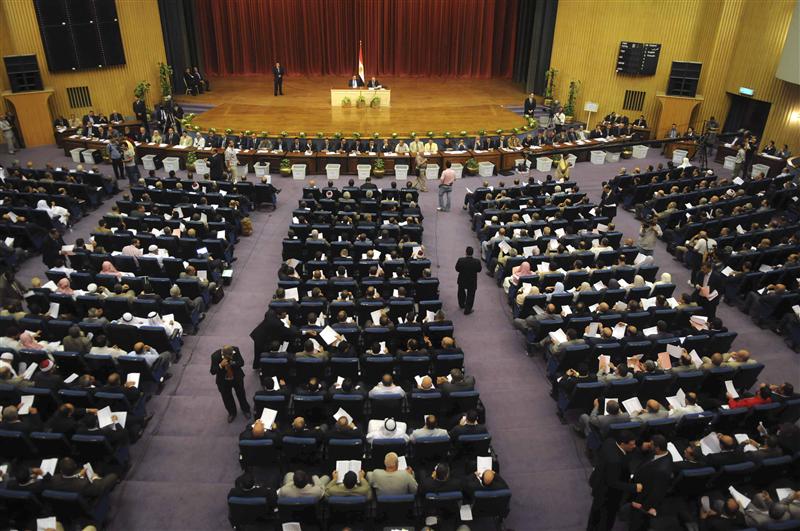EIPR report probes laws passed by executive order since 2011 uprising

CAIRO, Nov. 11 (Aswat Masriya) - The Egyptian Initiative for Personal Rights (EIPR) said that over 300 laws have been issued by executive order since the 2011 uprising, raising doubts on whether issuing these laws in the absence of parliament was a matter of urgent necessity.
Elections for the House of Representatives are currently underway, the final step in what was dubbed a "roadmap to democracy" following the ouster of Islamist President Mohamed Mursi in July 2013.
According to the constitution, the Egyptian president holds legislative power in the absence of a legislature.
In a launch event for the EIPR report titled "The Laws of Necessity", Amr Abdel Rahman, head of the organisation's civil freedoms unit, said that the over-active issuance of laws over the past five years have affected almost all aspects of public life.
The upcoming parliament is required by law to review these laws, some of which have been the subject of fierce societal debate, within 15 days of convening. Many are questioning whether the parliament will be able to discuss such a huge number of laws within the set timeframe.
Egypt's Supreme Council of the Armed Forces, which assumed power for over a year after the 2011 uprising, had disbanded the National Democratic Party-dominated 2010 parliament, the election of which is often cited as one of the triggers of the uprising.
Egyptians headed to the polls to choose MPs for the Upper and Lower Houses of Parliament in elections held in 2011 and 2012, but the short-lived assembly was disbanded in mid-June 2012, just days before Mursi was voted in as Egypt's first democratically-elected Islamist president.
The upper house, the Shura Council was disbanded a year later, in July 2013, days after the military ouster of Mursi one year into his term. Egypt has been without a legislature since.
In the past two years Egypt's executive authority has issued numerous controversial laws including a protest law, which critics say was designed to curb protests, and several laws to fight terrorism. The most recent was the anti-terrorism law, which was described by Egypt's press syndicate as containing "dangerous" articles.
The main author of the EIPR report, Tarek Abdelaal, said constitutions like the Brazilian or Spanish ones contain many guarantees that restrict the president from issuing legislation that impacts rights and freedoms in the absence of parliament.
The principle of "necessity" to issue laws, which exists in some constitutions, he added, allows the president to issue laws when there is a pressing or "urgent" need for them, where delaying them will have negative future consequences.
The report criticised several of the laws issued by President Abdel Fattah al-Sisi, including ones related to investment.
It also criticised laws on criminal justice, saying that the state has issued many laws that create harsher penalties "unnecessarily" and that raise fines to "unprecedented levels."
Of the many laws mentioned in the report, is one issued in 2014 by Sisi banning third parties from challenging sales or investment contracts signed between the government and investors.
Apart from the lack of an emergency condition that would require issuing this law, the report questions whether there is a public interest that necessitates it in the absence of a legislative authority.
It also questions whether the amendment itself realises the role of the people in monitoring public money.









facebook comments